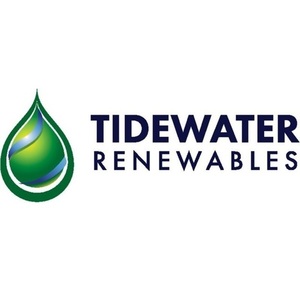Tidewater Renewables files countervailing and anti-dumping duty complaint

January 8, 2025
BY Tidewater Renewables Ltd.
Tidewater Renewables Ltd. has taken decisive action to protect fair competition in the Canadian renewable diesel market by filing a countervailing (anti-subsidy) and anti-dumping duty complaint with the Canada Border Services Agency at the end of 2024. The complaint targets unfairly traded imports of renewable diesel from the United States that significantly undermine the Canadian industry.
As previously disclosed, Tidewater Renewables engaged external trade law counsel for the purposes of evaluating legal options to address market distortions caused by unfair U.S. subsidies and dumping practices, including advising on and preparing the Complaint. This action reflects the Corporation's commitment to ensuring a level playing field for its production and sale of renewable diesel and BC LCFS and CFR emission credits.
Advertisement
If Tidewater Renewables is successful in this process, which management believes has a reasonably high likelihood of success, duties valued between $0.50 and $0.80 per liter could be imposed at the Canada/U.S. border to counter the subsidized and dumped U.S. renewable diesel imports. This reflects the Corporation's estimates that U.S. renewable diesel imports benefit from an average amount of subsidization and dumping of between 40% to 60%. Tidewater Renewables believes these measures are essential to remedy and offset the significant impact of U.S. subsidies, such as the Blender's Tax Credit and the forthcoming Production Tax Credit, which enable U.S. producers to export renewable diesel to Canada at artificially low prices.
"Tidewater Renewables supports healthy competition in the renewable diesel market but cannot compete in a market severely distorted by foreign subsidies and dumping practices," said Jeremy Baines, CEO of Tidewater Renewables. "Our legal action is necessary to restore fairness in the marketplace, protect our employees and shareholders, and secure the long-term viability of Canada's renewable diesel industry."
Advertisement
In accordance with the Special Import Measures Act, CBSA's investigation is expected to proceed swiftly. CBSA may publicly initiate an investigation in February 2025, with preliminary duties potentially being imposed as early as May 2025. Final duties, which will be subject to a ruling by the Canadian International Trade Tribunal, may be imposed by September 2025. If final duties are imposed at the levels expected by management, they would support long-term market stability for Tidewater Renewable's renewable diesel production and its related emission credits.
This important step is part of Tidewater Renewables' broader commitment to supporting Canada's energy transition and ensuring the integrity of the Canadian renewable fuels market.
Related Stories
More than 1.76 billion renewable identification numbers (RINs) were generated under the Renewable Fuel Standard in January, down from 1.91 billion generated during the same period of 2024, according to data released by the U.S. EPA on Feb. 20.
The U.S. EPA on Feb. 20 released updated small refinery exemption (SRE) data showing that 13 previously denied SRE petitions for Renewable Fuel Standard compliance years 2021 and 2022 are being reconsidered. No new SRE petitions were filed.
A coalition of biofuel, agriculture, fuel retailer and petroleum trade groups on Feb. 19 sent a letter to U.S. EPA Administrator Lee Zeldin urging the agency to set robust, timely, multiyear RFS RVOs for 2026 and beyond.
OMV Petrom has announced the start of construction for a sustainable aviation fuel (SAF) and renewable diesel (HVO) production unit at the Petrobrazi refinery in Romania. The new facility will have an annual capacity of 250,000 tons.
CVR pauses development of potential SAF projects pending regulatory, tax credit clarity
CVR Energy Inc. released fourth quarter financial results on Feb. 18, reporting reduced renewable diesel production. The company also said it is pausing development of SAF capacity pending clarity on government subsidies.
Upcoming Events










